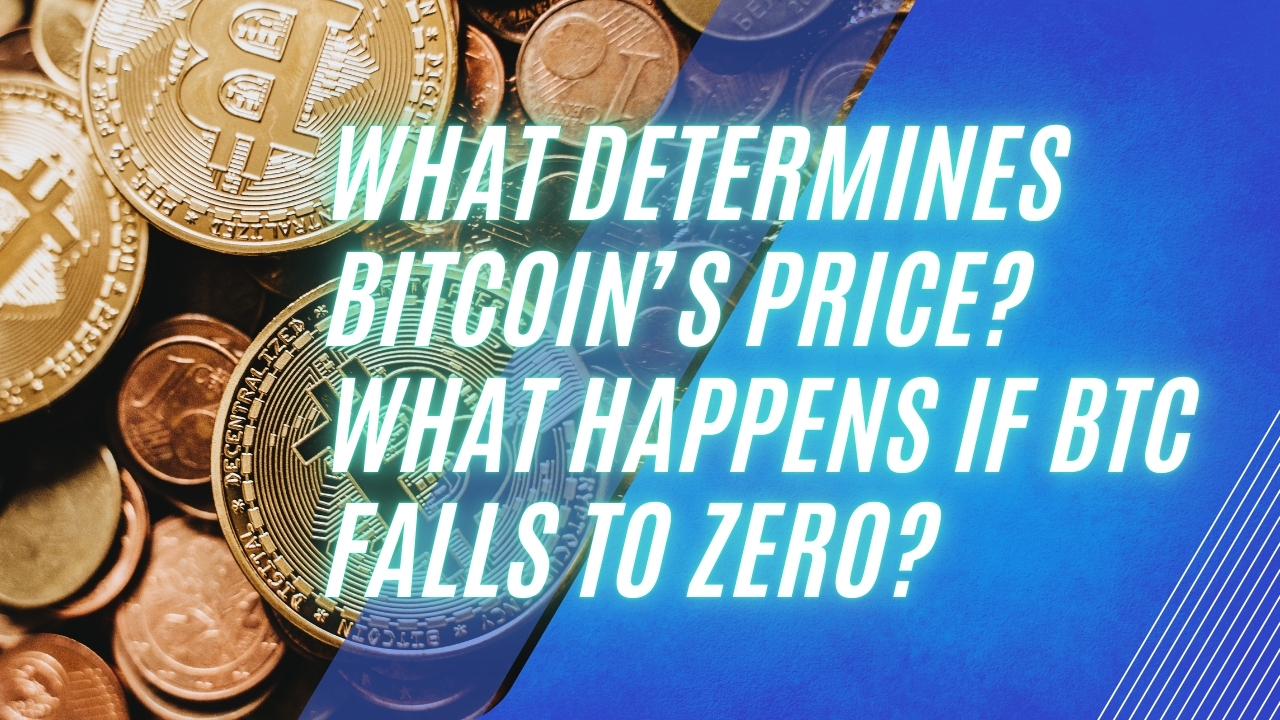Anyone interested in the crypto market has questions, especially about Bitcoin (BTC), the dominant force in the space. What determines Bitcoin’s value, what factors affect its price, and why is it so volatile? And perhaps the most intriguing question: what happens if Bitcoin‘s price falls to zero? Let’s dive into the answers to these frequently asked questions.
How Is Bitcoin’s Value Determined?
The forces of supply and demand primarily determine the price of Bitcoin. The price tends to drop when there are more sellers than buyers, and vice versa. Unlike traditional currencies like the dollar or euro, Bitcoin is a decentralized digital currency not issued by any government or regulatory body. It relies on a distributed network of users and cryptographic protocols for its creation, storage, and transfer.
Thanks to its peer-to-peer network, investors trade Bitcoin without intermediaries. This removes trading restrictions and simplifies transactions. Satoshi Nakamoto first proposed Bitcoin in 2008 and launched it in January 2009 as the world’s first cryptocurrency.
As more businesses accept Bitcoin, it gains real market value. However, its volatility and security concerns remain significant challenges. Common questions like “What determines Bitcoin’s value?” and “Does Bitcoin have intrinsic value?” are not easy to answer even at its peak.
Like any commodity, Bitcoin’s price is influenced by supply and demand. If more people want to buy BTC than sell it, prices will likely rise; if the opposite happens, prices will fall. It’s also important to note that Bitcoin’s price is not set by a single entity or traded in one place. Every market or exchange determines the price based on supply and demand dynamics.

What Factors Can Influence Bitcoin’s Price?
Several factors can affect Bitcoin’s price, including supply and demand, competition from other cryptocurrencies, news, production costs, and regulation.
- Supply and demand: As with any commodity, supply and demand influence Bitcoin prices. For example, prices may rise when the Bitcoin supply decreases (as with the Bitcoin halving event) due to increased demand.
- Competition and news: Bitcoin competes with other cryptocurrencies like Ethereum (ETH) and Dogecoin (DOGE), which can influence its price. Whether positive or negative, news and media coverage can also impact Bitcoin’s price.
- Production costs: The costs of producing Bitcoin include infrastructure expenses, mining electricity costs, and the complexity of the mathematical algorithm that slows or speeds up BTC production.
- Regulation: Changes in cryptocurrency regulation can significantly affect Bitcoin’s price. For example, the decision by countries like El Salvador to adopt Bitcoin as legal tender or bans from nations like China can cause price fluctuations.
Why Is Bitcoin So Volatile?
One reason for Bitcoin’s volatility is the uncertainty surrounding its true value. With a limited BTC supply, the demand must match its inflation rate to maintain price stability. Additionally, the crypto market is still relatively small, which means media coverage alone can drive prices up or down.
For instance, Tesla’s announcement to accept or reject Bitcoin can cause sudden price spikes or drops. Similarly, a tweet about a major blockchain issue can collapse prices. However, would Bitcoin really drop to zero?
What If Bitcoin Falls to Zero?
If Bitcoin’s price were to drop to zero, the impact would be felt across the entire market. Traders, institutional investors, and other digital currencies would all be affected. Crypto-related businesses, like exchanges, could see their customer base lose faith in the system, leading to a halt in investments.
If BTC hits zero, investors may withdraw their investments to limit losses, especially those holding large amounts or who bought in at higher prices. Institutional investors who have diversified into Bitcoin could also face significant losses, particularly those involved in derivatives and leveraged positions.
Additionally, Bitcoin’s collapse could lead to the liquidation of other assets to cover margin calls, resulting in further losses across financial markets. Trust in exchanges like Coinbase and Binance may erode, potentially leading to operational shutdowns or layoffs.
However, the chances of Bitcoin crashing to zero are slim. Bitcoin’s complex architecture and its role as a major digital asset in the global financial system make such an event unlikely, though not impossible.










